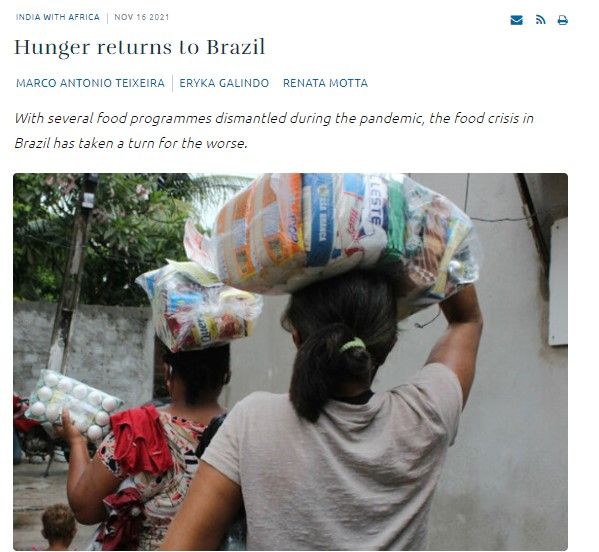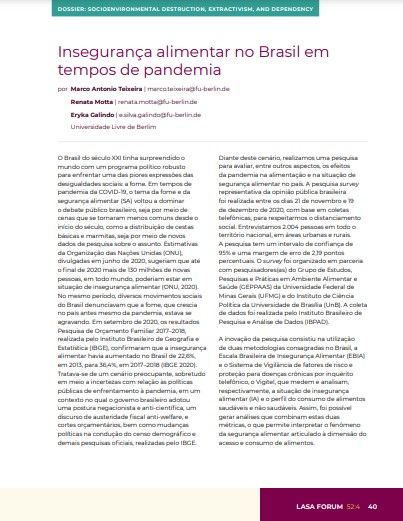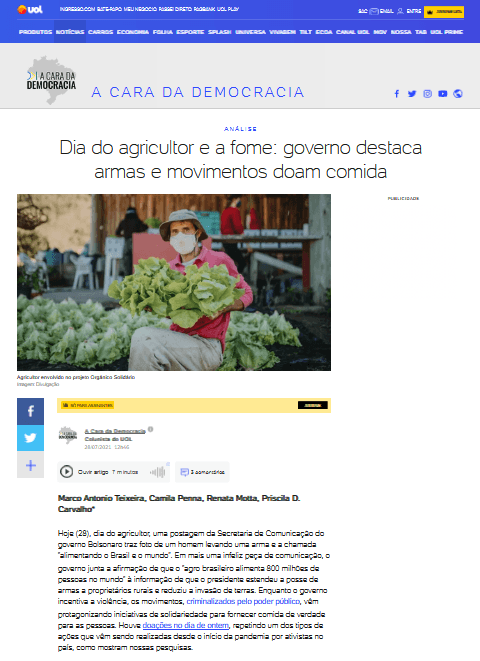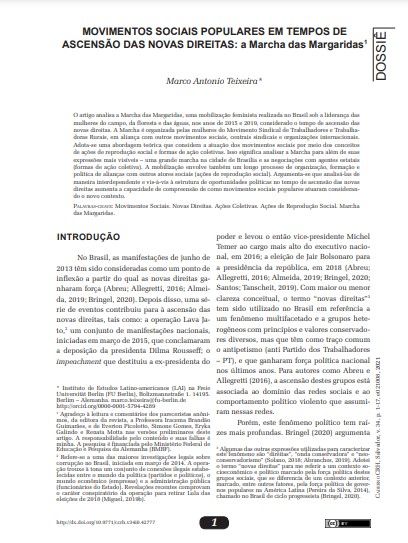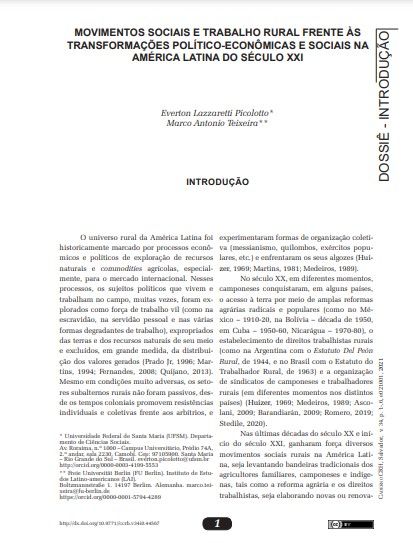Our Publications
Observer Research Foundation • 2021
Hunger returns to Brazil
LASA Forum • 2021
Insegurança alimentar no Brasil em tempos de pandemia
Roman & Littlefield Publishers • 2021
Allowing Rural Difference to Make a Difference: The Brazilian Marcha das Margaridas
Abstract
The article “Allowing Rural Difference to Make a Difference: The Brazilian Marcha das Margaridas” by Renata Motta and Marco Antonio Teixeira was published as a book chapter and contribution to the anthology Cross-Border Solidarities in Twenty-First Century Contexts: Feminist Perspectives and Activist Practices. This book, which was edited by Janet Conway, Pascale Dufour, and Dominique Masson, contains a selection of papers that look at social movements and global solidarity.
UOL • 2021
Dia do agricultor e a fome: governo destaca armas e movimentos doam comida
Caderno CRH • 2021
Movimentos populares em tempos de ascensão das novas direitas: a Marcha das Margaridas
Abstract
O artigo analisa a Marcha das Margaridas, uma mobilização feminista realizada no Brasil sob a liderança das mulheres do campo, da floresta e das águas, nos anos de 2015 e 2019, considerado o tempo de ascensão das novas direitas. A Marcha é organizada pelas mulheres do Movimento Sindical de Trabalhadores e Trabalhadoras Rurais, em aliança com outros movimentos sociais, centrais sindicais e organizações internacionais. Adota-se uma abordagem teórica que considera a atuação dos movimentos sociais por meio dos conceitos de ações de reprodução social e formas de ação coletivas. Isso significa analisar a Marcha para além de suas expressões mais visíveis – uma grande marcha na cidade de Brasília e as negociações com agentes estatais (formas de ação coletiva). A mobilização envolve também um longo processo de organização, formação e política de alianças com outros atores sociais (ações de reprodução social). Argumenta-se que analisá-las de maneira interdependente e vis-à-vis à estrutura de oportunidades políticas no tempo de ascensão das novas direitas aumenta a capacidade de compreensão de como movimentos sociais populares atuaram considerando o novo contexto.
This article analyses the Marcha das Margaridas , a feminist mobilisation spearheaded by women from the Brazilian Union of Rural Workers in alliance with other social movements, trade unions, and international organisations in the years 2015 and 2019 – considered to be the time of the rise of the new right. From a theoretical approach that regard the performance of social movements based on the concepts of actions of social reproduction and forms of collective action, we analyse the Marcha beyond its most visible expression – that is, a large street protest in the city of Brasilia, and the negotiations with state agents (forms of collective action). Rather, we understand this movement as also involving a long process of organisation, mobilisation, political formation activities, and politics of alliances with other social actors (actions of social reproduction). By analysing them interdependently and vis-à-vis the political opportunity structures at the time of the rise of the new right, we will better understand how social movements acted considering the new context.





